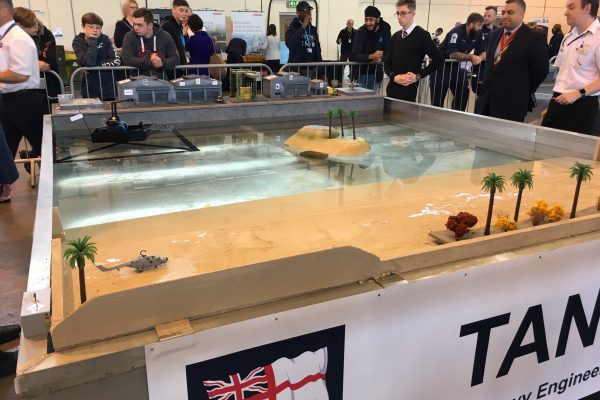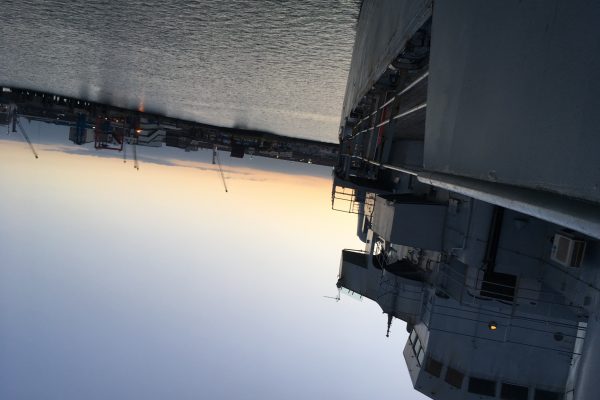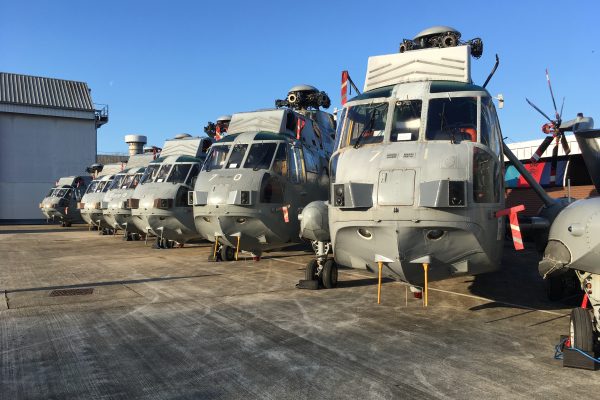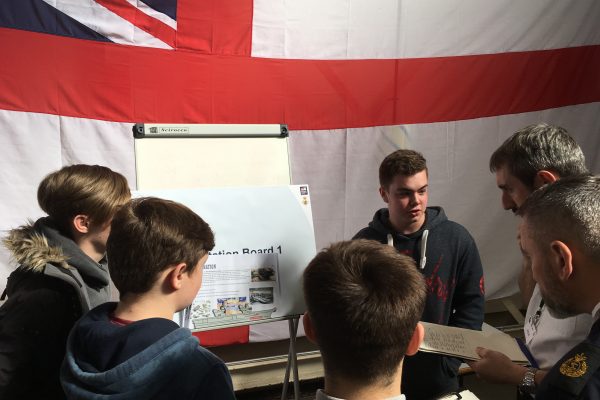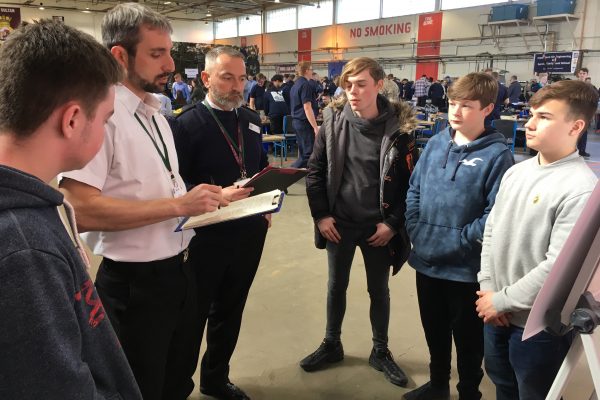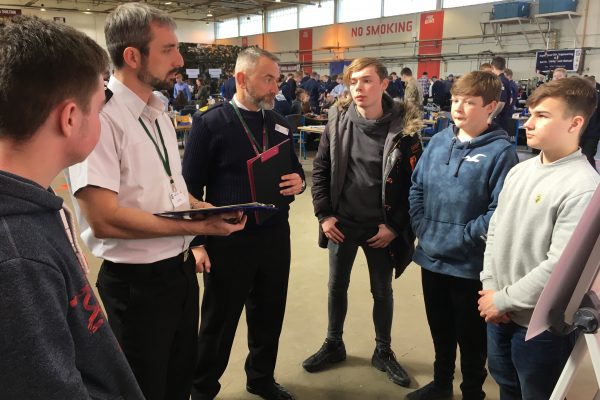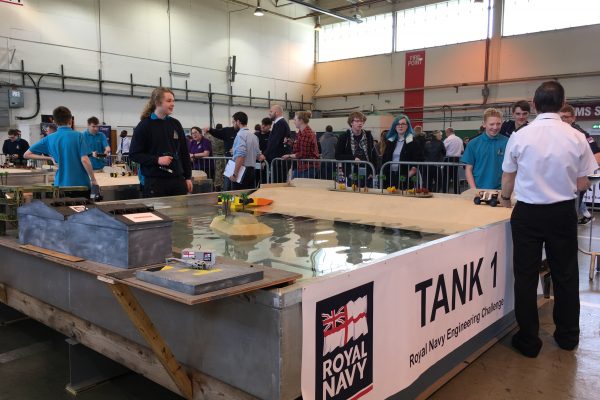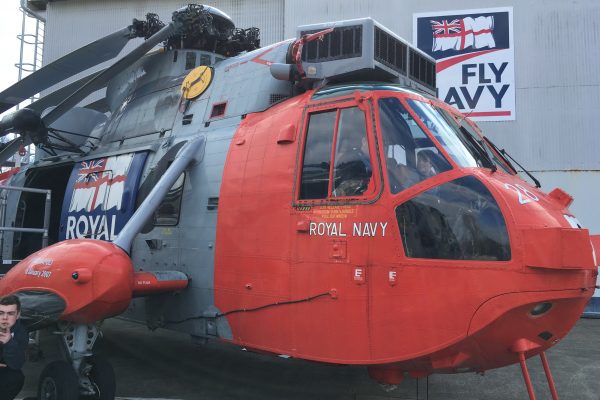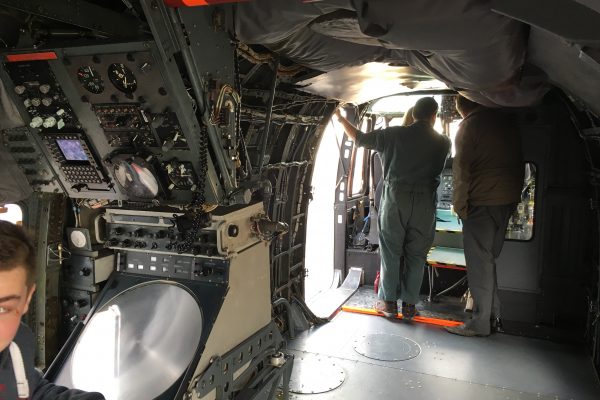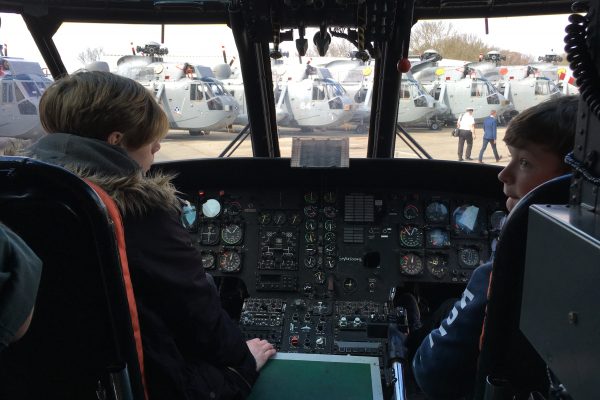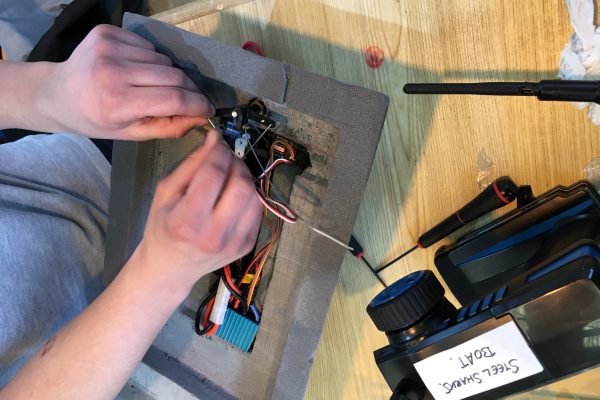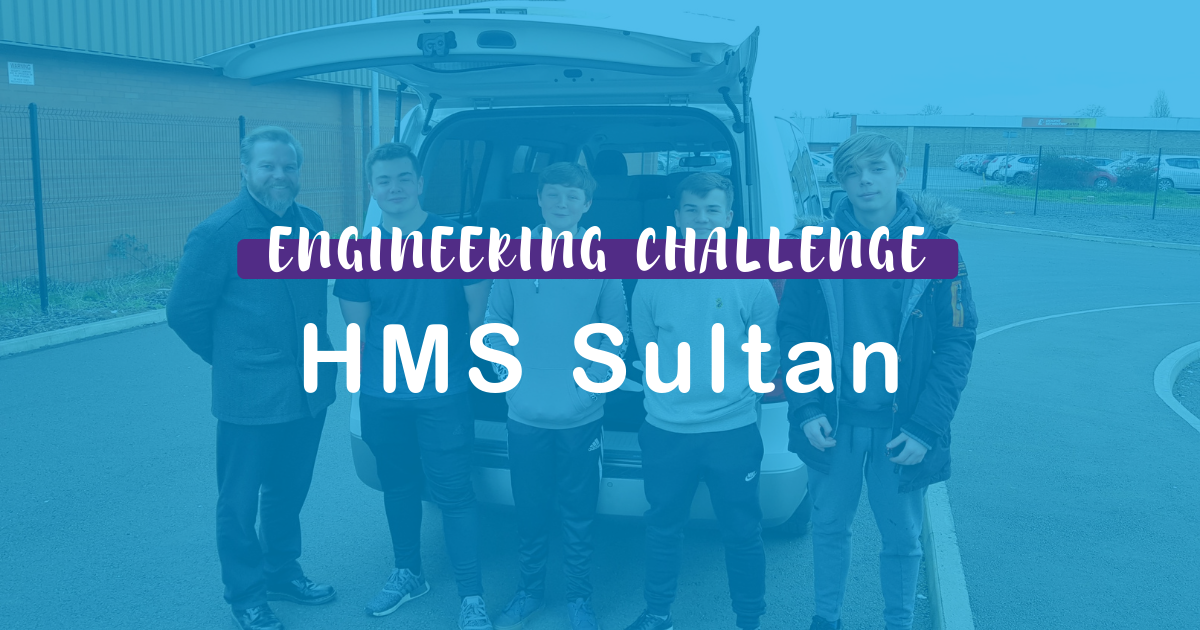
On Wednesday 27th March, four of our students; Rhys, Brandon, Joshua and Harry, gathered at HM Sultan, Gosport to compete in The Royal Navy Engineering Challenge.
Held in partnership with Eaton Ltd, Babcock and BAE Systems, this year’s challenge named Exercise Downbird Recovery, is aimed to inspire young people to engage further with STEM (science, technology, engineering and mathematics). These subjects helped to assist the students to design and build two remote-controlled vehicles; a land-based recovery vehicle capable of carrying a stranded helicopter and a ship that can transport it to safety.
In total, over 70 teams competed in this year’s challenge with many of the teams, including our own, enjoying the unique opportunity to experience 24 hours of naval life on board HMS Bristol! Able to roam the boat until lights out at 10:30pm, it gave our students a real insight into what The Royal Navy can offer.
After starting the day with a 5:30am wake up call, and noticing some minor issues with one of the designs, their first run got off to a less-than-ideal start as their land based recovery vehicle decided to take a swim. Yet despite this, our team powered through and spent the next four hours stripping the vehicle to repair the issues and to perfect the crane ready for the second run, which they completed in under 5 minutes and 30 seconds!
Leading up to the Challenge, the ENL UTC team dedicated many hours of their own personal time towards this project, and we are so proud to announce that due to their hard work, commitment and outstanding team work, the ENL UTC came in 3rd place within the 13-17 category, with a special mention from the judges for the greatest improvement across the day!
A massive well done to Harry, Brandon, Rhys and Joshua, and to all other teams who competed!
The Navy’s head of training, Commodore Andy Cree, commented on the overall Challenge saying “This realistic challenge presents young people with a rare opportunity to put their STEM studies into practice in a complex physical environment. The students will learn teamwork and systems thinking, which will serve them well wherever their careers take them.”

